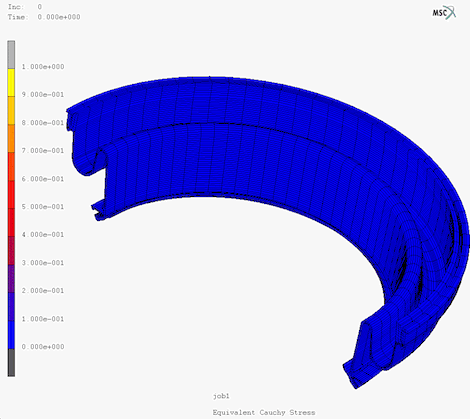
Marc 2017 has been expanded to incorporating adaptive meshing, material modeling, and contact capabilities to increase productivity and accuracy for nonlinear modelling.
MSC Software, part of the Hexagon group, has aimed Marc’s new features at addressing composite materials across a vast spectrum of simulations for aerospace, automotive and manufacturing industries.
The main upgrade is for complex material models such as plastics, rubbers, and composites that require accurate experimental testing and material characterisation.
Users can now obtain the material fit based upon the experimental data for carbon-filled rubber, thermoplastics, rolled sheet metals that exhibit complex anisotropic surfaces, as well as other nonlinear materials.
Simulations of thermally driven joining for welding and de-bonding that occurs with composites or other glued structures is now available, letting engineers account for changes in the contact behavior based upon both position and temperature changes during the engineering process.
Performance has been upgraded too, with enhanced parallel processing able to reduce run times and improve productivity for nonlinear simulations.
The global adaptive meshing capability of Marc is already used in rubber, manufacturing, and fracture simulations, and has now been enhanced to support higher order tetrahedral elements, which are often required for bending dominated models.
Additionally, the procedure has been improved to better represent the current deformed geometry and create higher quality finite element meshes.
The element library has been expanded to include new pyramid elements that are designed to create a smooth and conforming mesh transition between different element types.
For complex geometries, a newly generated mesh provides increased efficiency by reducing the number of elements in the model.






